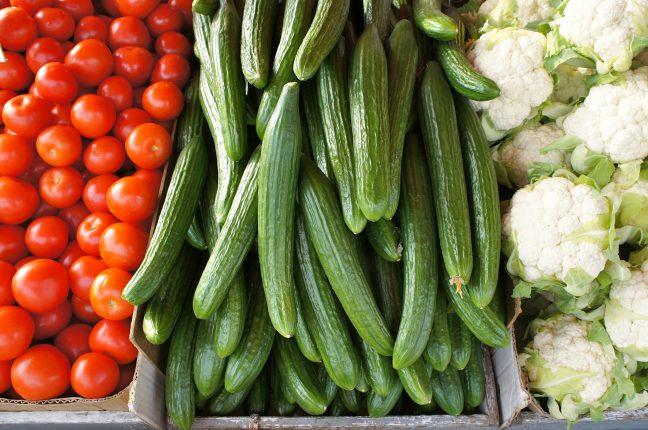For farmers who ship their produce across the country, the desired traits for their produce are often shelf life, yield and efficient shipping, not flavor.
This is a potential problem for people hoping to include more vegetables in their diet. That’s where the University of Wisconsin’s Seed to Kitchen Collaborative comes in. It unites UW professors, plant breeders, local farmers and some of Madison’s top chefs to improve the flavor and appeal of locally grown fruits and vegetables.
Now in its third year, the Seed to Kitchen Collaborative includes six Madison chefs, farmers, plant breeders and the public who evaluate local crops for their flavor and fresh quality during taste-testing sessions.
Wisconsin ranks second highest in the country for both the total number of organic farms and for the number of organic vegetable farms. Surveys, however, show that many people do not eat enough direct market or organic vegetables because they lack flavor.
Julie Dawson, UW assistant professor of horticulture, said the chefs’ opinions are important in identifying desirable qualities in a variety of local produce such as squash, beets, tomatoes, potatoes, onions, peppers, melons, carrots and kale.
“By working directly with chefs and farmers to develop evaluation methods for flavor, we hope to improve our ability to select high quality vegetable varieties for farmers, gardeners and consumers,” Dawson said.
Moreover, flavor has taken a backseat because of the importance of shelf life and shipping tolerance of foods. UW graduate students play an important role in developing vegetable varieties that have the quality and variety needed for a direct market along with the flavor consumers want to taste in their vegetables, Dawson said.
Solveig Hanson, a graduate research assistant, has been working to accentuate beets’ earthy flavor, which she said people seem to like more. Hanson said she is focused on breeding beets with flavor and color that people have never experienced.
“When we selected for flavor [in plant breeding] and ignored color, we’ve gotten these really cool multi-color beet populations,” Hanson said. “There is potential to make something cool the market has never seen before.”
Hanson said she knows the “classic red beet” will be hard to replace, but there is potential to create a beet that can be profitable and interesting for consumers, farmers and chefs.
CALS receives $2 million endowment to research organic farming
These “specialty crops” when sold in the direct market are profitable for farmers, Hanson said. By involving many different people in the process, the Seed to Kitchen Collaborative program can grow and develop into something sustainable.
Because Wisconsin’s economy depends heavily on agriculture, this program looks to utilize these local resources more often so that the state and local economies can grow, Dawson said.
“So we are trying to give the diversified vegetable farms that are selling to farmer’s markets the information they need to make good variety decisions and also the ability to contribute to those programs so in the end we end up with better [vegetable] variety in Wisconsin,” Dawson said.
The concept was first conceived after Dawson met chef Tory Miller, winner of a James Beard award and top chef at Madison’s L’Etoile, at a New York conference. The program is developing relationships with chefs outside of Madison to make this a state-wide program, Dawson said.
The Seed to Kitchen Collaborative hopes to continue experimenting with interesting vegetables that can be grown for all of the different local food markets. This way, Wisconsin can become more sustainable and the economy can prosper.
“Our overall goal is to develop varieties that are well-adapted to Wisconsin, that have the quality that is needed for a direct market and really the flavor consumers want to eat more vegetables,” Dawson said.

















